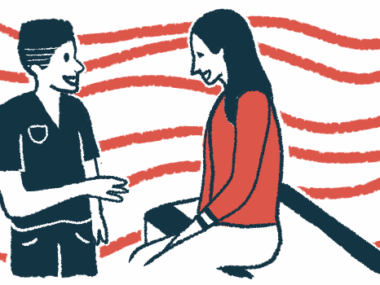Importance of Advocacy for aHUS
Written by |

Atypical hemolytic uremic syndrome (aHUS) is a rare disease that is sometimes hard to diagnose. Health advocacy works to raise awareness about aHUS, helping to ensure patients are given a faster and accurate diagnosis, treatment options, and ultimately, better medical care.
Here is information about advocacy and organizations that advocate for aHUS.
What is aHUS?
aHUS is a rare condition characterized by excessive blood clotting that blocks small vessels, and particularly affects blood flow to the kidneys. It is typically caused by mutations that affect proteins of the complement system, part of the immune system, plus environmental factors that serve as a disease trigger. Genetic factors increase a person’s likelihood of this disease, but are not directly its cause.
What is health advocacy and why is it important?
Health advocacy involves support for patients on an individual or group level. Advocates can help patients and their families navigate the healthcare system, and ensure awareness of treatment options and ongoing research.
Health advocates also work to improve the health of the entire aHUS community by raising disease awareness and helping to influence policies. As part of a patient organization or public health association, advocates can help promote changes through social media, community events, and political lobbying. Health advocates can be professionals, or they can be volunteers affected in some way by a given disease.
aHUS alliance Global Action
There are a number of organizations that advocate on behalf of people with aHUS. One of the largest is the aHUS Alliance Global Action. This international group, launched on Rare Disease Day in 2013, focuses on increasing disease awareness, supporting new aHUS patient groups, and working with aHUS researchers across the globe.
Through patient interviews, the alliance recently published a report meant to help guide treatment decisions across organizations and countries regarding the use of Soliris (eculizumab) and Ultomiris (ravulizumab). It addressed opinions on their effectiveness, side effects, and the safety of transitioning between the two.
A questionnaire study underway is also compiling information about the diagnostic journeys of aHUS patients to better understand points that speed up, or create barriers to, an accurate diagnosis.
The group also organizes the aHUS Awareness Day, which takes place each Sept. 24, uniting people across the globe and raising awareness about the disease and the difficulties that patients face.
aHUS Alliance Global Action participates in Rare Disease Day, which takes on the last day of February each year. Rare Disease Day is coordinated internationally by Eurordis-Rare Diseases Europe; the National Organization for Rare Disorders (NORD) organizes events in the U.S. Both organizations work to bring greater awareness about rare diseases to the public, health professionals, researchers, policymakers, and the pharmaceutical industry.
Other advocacy organizations
Other organizations that advocate for aHUS and the rare disease community include the aHUS Foundation and Global Genes.
Alexion, the manufacturer of Soliris and Ultomiris, also helps to support advocacy and aHUS patient organizations.
Last updated: Feb. 15, 2021
***
aHUS News is strictly a news and information website about the disease. It does not provide medical advice, diagnosis, or treatment. This content is not intended to be a substitute for professional medical advice, diagnosis, or treatment. Always seek the advice of your physician or other qualified health provider with any questions you may have regarding a medical condition. Never disregard professional medical advice or delay in seeking it because of something you have read on this website.





